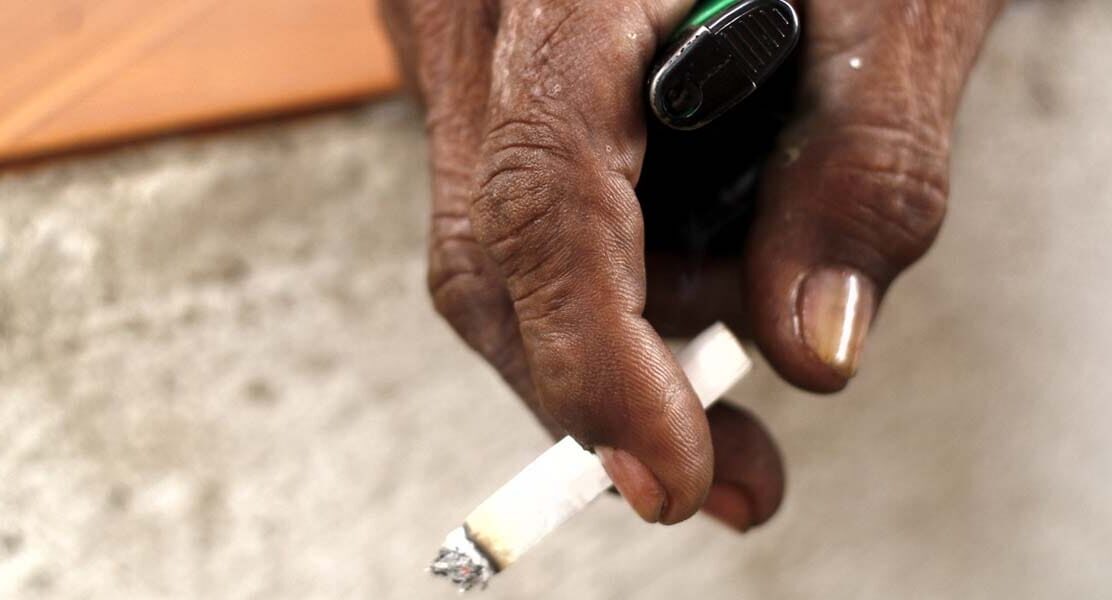The United Kingdom’s tobacco ban is one step closer to becoming law. On April 16 the Tobacco and Vapes Bill passed through the House of Commons, with members of parliament casting 383 votes in favor and 67 against.
Despite the bill’s overwhelming majority approval, 57 of the opposing votes came from Prime Minister Rishi Sunak’s own Conservative party, undermining his authority amid disputes over the controversial bill.
The legislation will authorize on-the-spot fines on anyone selling tobacco products to anyone born on or after January 1, 2009. It will then increase the legal age of purchase by one year, every year, effectively outlawing smoking. No one turning 15 in 2024 will be able to buy regulated tobacco products.
The bill will impose similar fines on anyone selling vape products to anyone under 18, as well as impose restrictions on vape flavors and packaging—a reactive measure to the panic around youth vaping. This is in addition to the vape tax announced in March.
The bill’s final vote will be held in June. If it becomes law as expected, it would take effect in 2027.
“MPs [could] further mislead the public into believing vaping products pose the same risks as cigarettes.”
Former Conservative prime minister Liz Truss told Parliament the plan was “emblematic of a technocratic establishment in this country that wants to limit people’s freedom.” Former Conservative prime minister Boris Johnson called it “absolute nuts.” Tobacco lobbyists were reportedly trying to “derail” the policy in the lead-up to the House of Commons vote. Tobacco harm reduction group New Nicotine Alliance has launched a campaign against the “extortionate” tax, which will affect everyone who vapes.
Sunak announced his plans to create a “smoke-free generation” at the Conservative party conference in 2023. The idea of incrementally raising the legal age of purchase was modeled after a similar ban proposed in New Zealand at the time, which has since been scrapped with the arrival of a new coalition government.
UK Chief Medical Officer Chris Whitty, a proponent of the bill, has claimed it “will have a major effect on preventing disease,” adding that 70 percent lung cancer cases are caused by smoking. An increasing number of English adults are not aware that vapes are estimated to be 95 percent less harmful than cigarettes.
“MPs risk waving through policies which will further mislead the public into believing vaping products pose the same risks as cigarettes,” Martin Cullip, a tobacco harm reduction advocate and former chair of New Nicotine Alliance, told Filter. “It only takes a small percentage of adult or youth vapers reverting to smoking, or people who smoke deciding not to switch from combustible tobacco, to dwarf any benefits the government hopes will arise.”
“The smoking measures apply to people who are never going to get sick and die from smoking.”
It’s currently legal to sell vapes to anyone 18 or older. As the government endeavors to makes vapes less attractive to youth, it also makes them less attractive to adult smokers who could benefit from switching to the less-harmful alternative.
“The main problem with the Tobacco and Vapes Bill is that the smoking measures apply to people who are never going to get sick and die from smoking,” Clive Bates, of tobacco harm reduction-focused Counterfactual Consulting, told Filter.
“Vapes are already solving the smoking problem in younger people,” he continued. “By the time they are old enough to start getting ill from smoking—at about age 40 in 2049—hardly anyone in that age group will be smoking, and everyone will have the choice to use alternatives.”
Only around 19 percent of people in the UK smoke cigarettes, less than half what the smoking rate was in the 1970s. But an estimated 80,000 people still die of smoking-related causes each year, and smoking rates among younger women have gone up 25 percent over the past decade.
“The bill has measures with populist optics about protecting teens,” Bates said, “but it is going to make the smoking problem worse for the people actually at risk.”
Cropped image via United States Fire Administration




